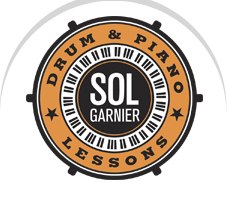Ah! This is a good question. This is where the common man gets clueless, because, he thinks, if one studies an instrument, it is either to become a player or a teacher of that instrument and there are not necessarily any other avenues.
Well, it remains to be seen.
So, although I would concede that one studying drums can become a drummer or a drum teacher, even in those two branches alone, there are many, many possible jobs.
For the player, it could be someone who does a lot of gigs, who loves to be on the road. And even there, there are choices to be made. Does she want to be a blues drummer, or work on a cruise line, or do the NACA circuit or reach for stardom with a band, or compose and sing and be the new Phil Collins?
As for teaching, same thing: private drum teacher could be tempting. Or working for a public or private school system, or opening your own school with different teachers, or going to Africa to teach little kids about the art of drumming, or writing drum methods, or working for a music school, etc…
My point is this: study music because you love music. Spend the time, the effort, the money to understand it correctly. Then, as you do so, look around, see what you are interested in, explore the vast and diverse landscape of musicians jobs. It will take time because there are so many things to do.
I always say that the problem with music is that one can become what she wants to become. The only limit is your imagination. But to answer with a joke the question “What kind of career can a music education lead to?” Try this as an answer: Chairman of the federal reserve bank. Because Alan Greenspan used to be a professional clarinetist.
